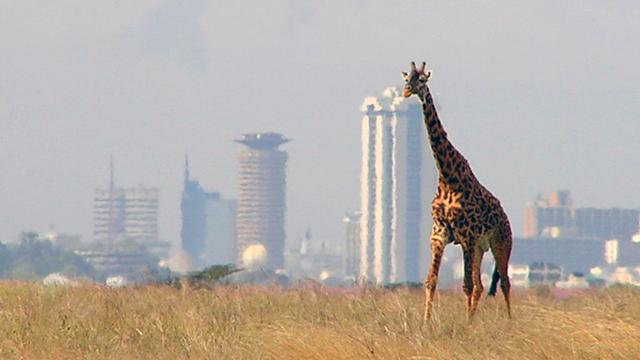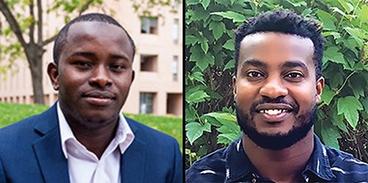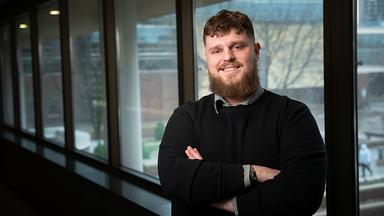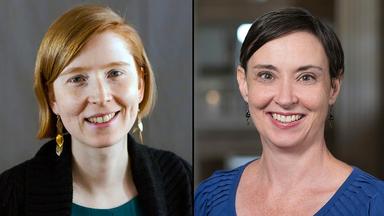Photo: Mkimemia, Creative Commons
Two alumni from the Humphrey School of Public Affairs are bringing their African culture and expertise to older Minnesotans through the Osher Lifelong Learning Institute (OLLI).
OLLI offers more than 300 noncredit courses to adult learners each year on subjects ranging from art and literature to science and sports. In 2014, OLLI partnered with Culture Corps, a program from International Student and Scholar Services (ISSS) that enables international students to share their unique global perspectives and insights across campus.
Debunking Myths About Africa
Feelings of isolation as a new graduate student at the Humphrey School led Antony Maikuri (MDP ‘17) to the Culture Corps program. In 2016 he created the “Diverse Voices of Africa” class at OLLI, which gave him a chance to talk about his home country of Kenya.
“It quickly stopped being like a class and became more of a conversation,” said Maikuri, who is pursuing his PhD in organizational leadership, policy, and development. “People would say, ‘I saw this on CNN. What can you tell me about it?’”
Nfamara Dampha (MDP ‘17), a native of Gambia who is also working on his doctoral degree, co-teaches the class with Maikuri. Dampha said media coverage often shows only the negative side of Africa — starvation, war, natural disasters.
“The idea of the class is to look at both the positive and the negative sides,” Dampha said. “There’s so many positive things happening that people won’t hear about in the United States.”
The class covers one country each week, featuring a guest speaker from that country. Since starting in 2016, the class has covered about half of the 54 countries in Africa.
Photo: Africanmodern, Creative Commons
Maikuri and Dampha often start the class by showing photos and having the participants guess where they were taken. When the photo is a beautiful, modern city (such as Nairobi, Kenya, pictured at left), they don’t guess anywhere in Africa. But if it’s a poor area, maybe with some small, run-down homes, they think it is in Africa.
“We want to ensure that the misconceptions and perceptions people have are met with reality from African students themselves,” Maikuri said.
Participants aren’t shamed for what they might have thought before, though. “This is a space for people to ask questions,” Maikuri said. “There is no judgment.”
And there is no shortage of questions for the African students.
“The OLLI members don’t care so much about the data,” Dampha said. “They like hearing the stories — what are some of the challenges, what are some of the opportunities, tell us more about the food.”
Maikuri has been surprised by the impact of the class. “It’s changing participants’ thinking and how they engage with other people,” he said.
Recognized for Internationalization Efforts
Maikuri and Dampha recently received the Josef Mestenhauser Student Award for Campus Internationalization in recognition of their efforts to bring African perspectives to campus and the greater community.
“Antony and Nfamara have, with one course alone, created a new physical space for other international African students that did not exist before,” said Taki Andrianakos, program manager at OLLI, in nominating the two for the award.
Both Dampha (left, in photo) and Maikuri (right, in photo) have contributed to internationalization on campus beyond OLLI.
Maikuri served as the first graduate facilitator of the International Student Advisory Board, and helped introduce new international students to the University through Global Gopher Events. He is also working to design a program to connect international graduate students with the larger University community.
Dampha supported the curriculum development of the Master of Human Rights program at the Humphrey School, and helped promote the program to diverse students from all around the world. In addition, he is an International Student Ambassador for his PhD program in Natural Resources Science and Management.
Both have big plans for their futures. Maikuri wants to work for nongovernmental organizations in Africa. His dissertation is in the field of evaluation in international development. He notes that published studies are typically by Westerners who don’t have as much knowledge of the country or region as a native would.
Maikuri wants to make sure African voices are included in the academic literature in the future. He thinks African and Western knowledge can be combined to build capacity among Africans, enabling Africans to do their own program evaluations.
Dampha already runs a nonprofit in his native Gambia on environmental and climate issues. He’s also leading to establish the Institute on Climate Change and Environment Africa (ICE Africa). Dampha and other organizers are hosting a conference in Gambia in August 2020 for young scholars to meet and discuss climate and environmental issues.
“I want to see African researchers working together to tackle the issues facing Africa,” he said.
A version of this story was originally published by International Student and Scholar Services (ISSS).




